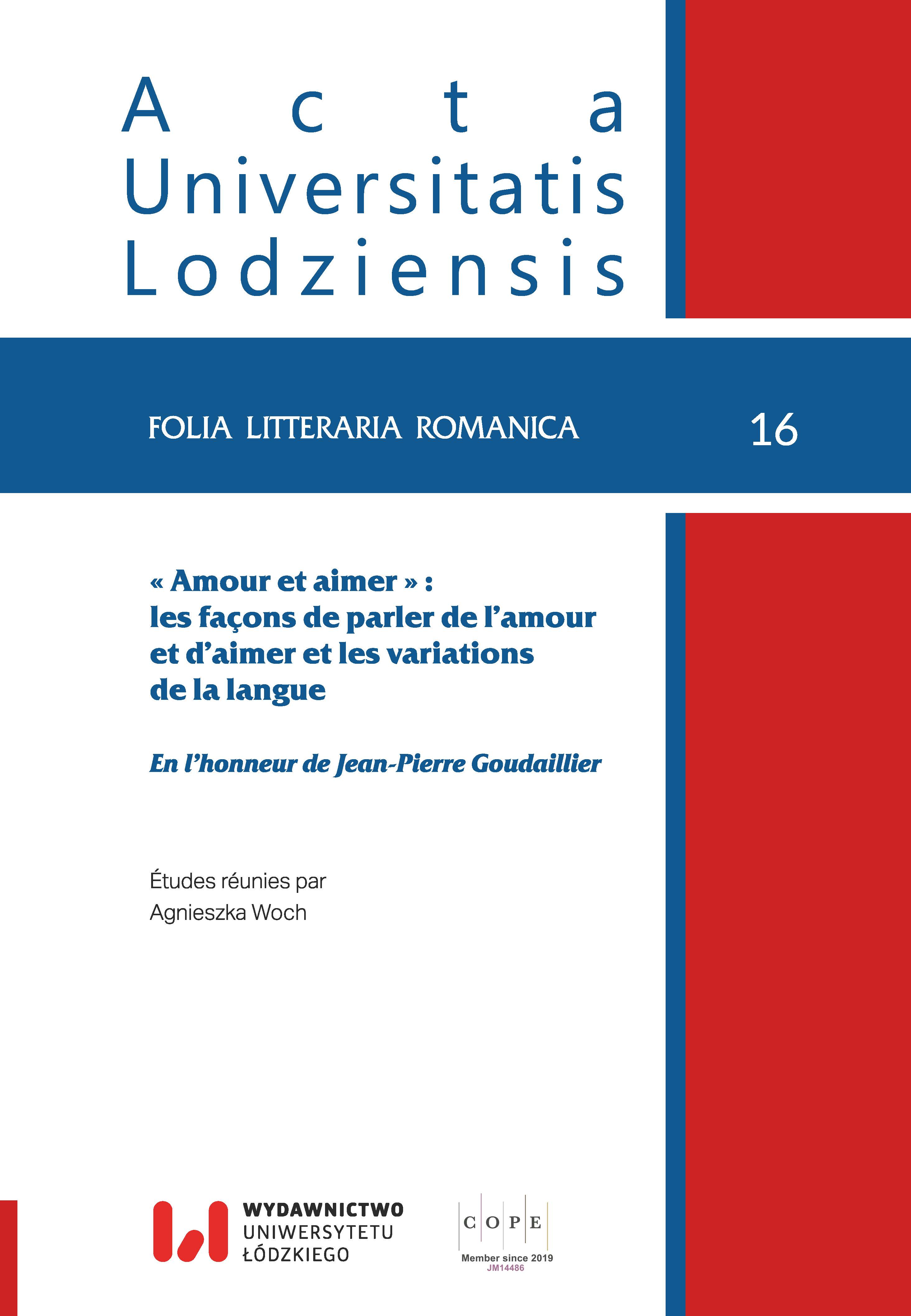Words of Carnal Love in the Lyrics of Georges Brassens’ Songs
DOI:
https://doi.org/10.18778/1505-9065.16.22Keywords:
Slang in French songs, language of Brassens, language of sexuality, stylistic variation, literary registerAbstract
How does Brassens, one of the greatest French singers of all time and one of the most important French poets of the 20th Century speak about sexuality? The choice of the topic of this paper can be explained on the one hand by the reputation of Brassens as an author who was not afraid to call a spade a spade and recorded scandalous songs such as “Le gorille”, “Le mauvais sujet repenti” or “P… de toi”, and on the other, by the stylistic variability of his vocabulary that seems to range from vernacular and slang to formal style. The qualitative analysis described in this paper has confirmed the hypothesis of great stylistic variability among words of carnal love that can be found in the texts of Georges Brassens. However, slang and dirty words are seldom used by this modest libertine who often speaks of sexuality but who is hardly ever explicit.
Downloads
References
BRASSENS, Georges (1993), Les Chansons d’abord, Paris, Le Livre de Poche
Google Scholar
COLIN, Jean-Paul, MÉVEL, Jean-Pierre, LECLÈRE, Christian (2006), Grand dictionnaire de l’Argot & du français populaire, Paris, Larousse
Google Scholar
GARITTE, Jean-Louis (2017), Brassens. Mais où sont les mots d’antan ?, Neuilly, Atlande
Google Scholar
KOVÁCS, Máté (2020), « Vers une redéfinition du registre littéraire : Les variétés de langue non standard comme langue de la narration littéraire » in Diversité et variations de la langue française au XXIe siècle, (R. Mudrochová, B. Courbon éds), Plzeň, NAVA, p. 261-274
Google Scholar
MÉRIGAUD, Bernard (éd.) (2001[sans date]), « Brassens. Un copain d’abord », Télérama, Hors série, nouvelle édition
Google Scholar
PERRAUD, Antoine (2001[sans date]), « La langue fourchue » in Brassens. Un copain d’abord (B. Mérigaud éd.), Télérama, Hors série, nouvelle édition, p. 74-75
Google Scholar
REY, Alain, REY-DEBOVE, Josette (éds) (2018), Le Petit Robert de la langue française, Paris, Dictionnaires Le Robert
Google Scholar
SALACHAS, Gilbert, BOTTET, Béatrice (1989), Le guide de la chanson française contemporaine, Paris, Syros/Alternatives
Google Scholar
SZABÓ, Dávid (2004), L’argot des étudiants budapestois, Paris, L’Harmattan/ADÉFO
Google Scholar
TRÉDEZ, Florence (1999), Brassens, Paris, EJL
Google Scholar
Downloads
Published
How to Cite
Issue
Section
License

This work is licensed under a Creative Commons Attribution-NonCommercial-NoDerivatives 4.0 International License.













